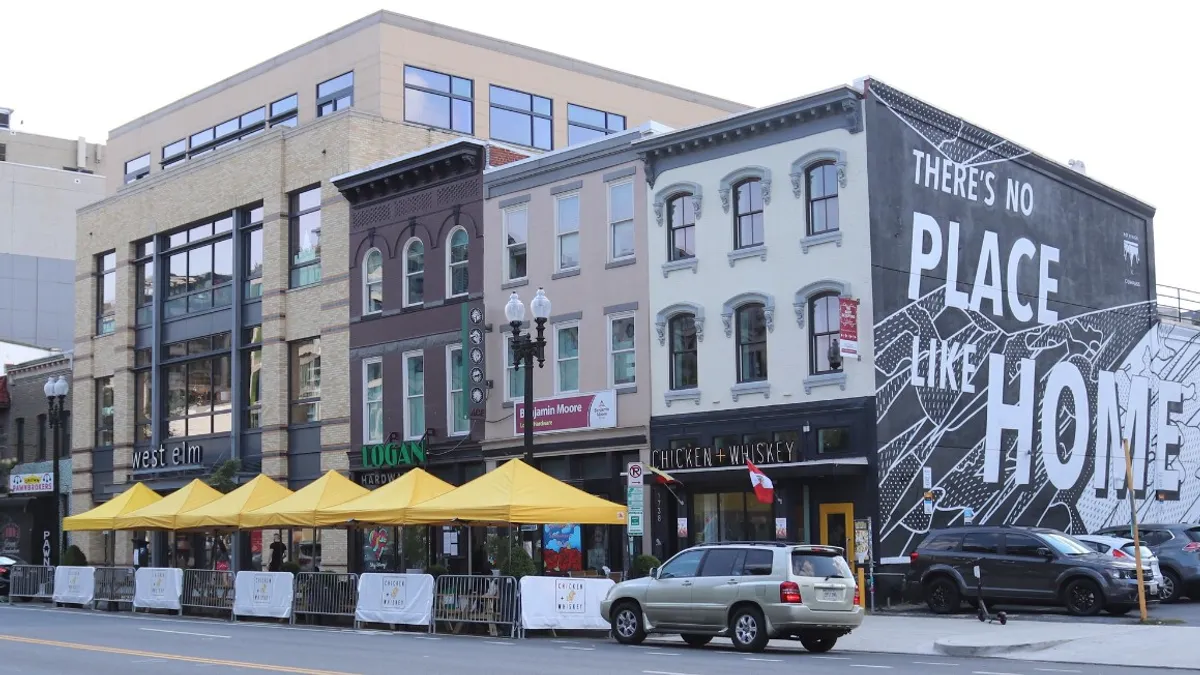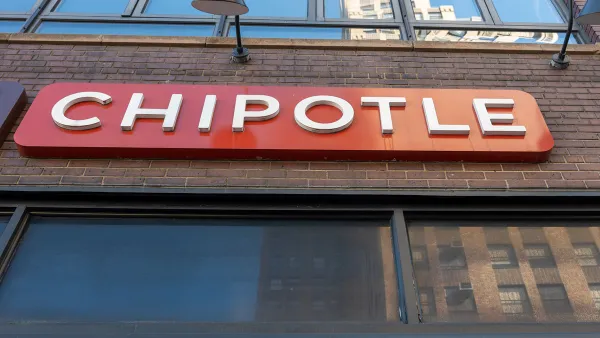Dive Brief:
- Washington, D.C., Mayor Muriel Bowser announced Wednesday it will provide a $100 million "Bridge Fund" to support hospitality and entertainment businesses, allocating $35 million for area restaurants. Up to 700 restaurants will receive $10,000 to $50,000 each, according to DCist.
- Another $30 million will be put toward hotels, $20 million to entertainment businesses and $15 million to retail businesses. The fund combines $80 million from contingency cash reserves "for nonrecurring or unforeseen needs," with $20 million left over from Cares Act federal funding.
- Washington, D.C., restaurants are still open for indoor dining at 50% capacity, but Bowser said in a press conference earlier this week the district could soon put new restrictions in place. The Bridge Fund follows a $4 million grant program that began distributing funds Oct. 1 to restaurants and retail businesses looking to prepare their spaces for winter weather. The program offers $6,000 to businesses with active sidewalk cafe permits or private outdoor spaces.
Dive Insight:
The district's restaurant aid is more aggressive than San Francisco's recent allocation of $4 million for small businesses impacted by COVID-19, $500,000 of which will be put toward area restaurants to purchase equipments and "reconfigure space to meet social distancing requirements." San Francisco is also offering $500,000 for zero-interest loans for low- and middle-income restaurants to cover operating costs, along with $2.5 million to waive taxes and fees for small businesses, including fees for winterization innovations.
San Francisco's funds were announced Nov. 11, the same day the city informed restaurants indoor dining would be shut down for the second time since the start of the pandemic following a 250% surge in virus cases since Oct. 2. Mayor London Breed did not disclose how long the dining ban would last.
It's possible D.C. is bracing for its own second round of shutdowns, and is preparing funding for its restaurants ahead of time to help mitigate closures. The district's virus cases have risen 34% over the past week. The city has also found 25.8% of people who tested positive for the coronavirus said they had eaten at a restaurant within two weeks of the appearance of symptoms or from when they received results. This contract tracing did not distinguish, however, whether the infected individuals had dined inside or outside at restaurants — ambiguity that some groups have criticized in other studies.
States including Washington, Oregon, New Mexico and Michigan have also issued new dining room restrictions, with Washington shutting down indoor dining entirely until Dec. 14 unless extended or revoked earlier.
There are likely more such shutdowns ahead, as COVID-19 cases continue to climb around the country. These shutdowns will likely shutter more restaurants that were already struggling to drive sales under capacity restrictions and increased expenditures on heating equipment for outdoor seating. Washington, D.C.'s financial aid could help restaurants hang on for a period, but it may not be enough for many to outlast the winter months.














